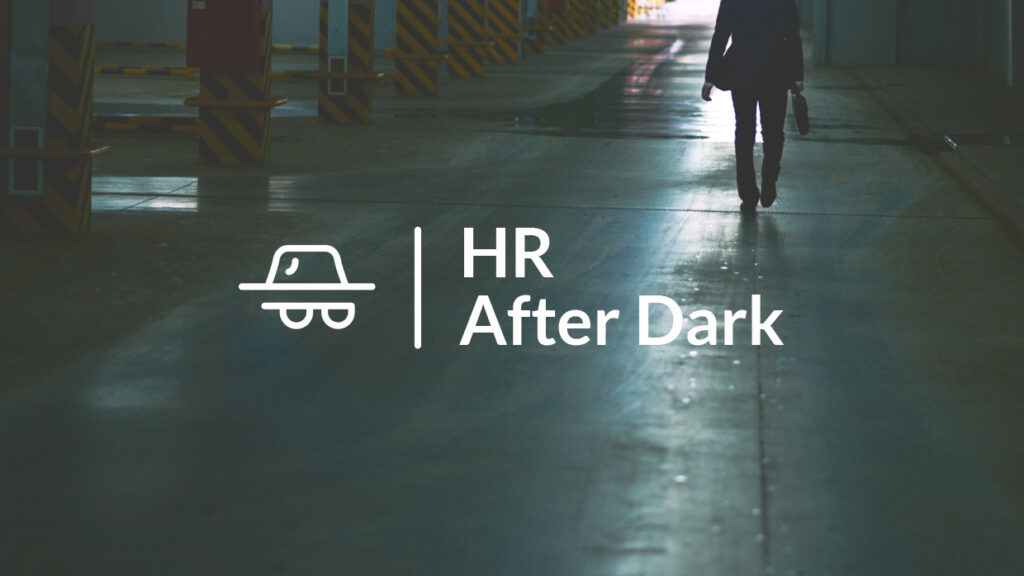No names, no job titles, no companies. HR After Dark features totally anonymised opinion pieces from HR professionals, consultants and industry commentators. No holds barred, no censorship, nothing but raw opinions on issues that matter to HR. When the lights go down, HR After Dark comes out to play. See it all here first. Want to write for HR After Dark? Get in touch at hrafterdark@hrzone.com.
Perhaps the most annoying question a young professional can be asked during the tiresome ritual of the performance review is “Where do you see yourself in 5 years’ time?”
The right answer is: “I don’t know”.
But, of course, when I’m asked, I’ll equivocate; reel off an empty sentence about “how passionate I am about the company” and how ambitious I am.
Between financial cataclysms, impending environmental collapse, rampaging inequality, automation and rising cost of living – this generation is unhinged from the era of the company man. This is a global system seemingly predicated on sabotaging young people. At this rate, I’d be happy to get an annual pay rise to stay level with inflation.
All this begs the question: What can HR do?
I’m sure HR means well, they’re usually very kind – but the insistence on utilising a formula from a long forgotten time where a 25 year old could buy a house rubs me the wrong way.
How’s about, instead of vacuous questions and empty perks, you do things that will materially affect me? How about implementing a policy that allows each worker one unpaid sabbatical after three years? How about a four day work week? We don’t live in the 1970s anymore, so why the hell are we working like it?
A lot is made of the “start-up generation”. But has anyone wondered why it is so? Young people, alienated from the modern workplace, have been forced to make work in their image. We can’t afford luxury items anymore, so all we have left is meaningful experience – and work is a central component of that.
And besides, my parents’ conception of trading drudge work 9-to-5 to afford a decent life is not just unattainable to me (thanks to stagnant wages), it’s entirely unpalatable. I want my work to be meaningful. And no, that doesn’t saving the world; that means experientially meaningful, filled with moments.
I can almost hear the collective sighs followed by “kids these days!”.
But what is wrong with demanding and expecting fulfilment? This idea that I must be “grateful” for my work, and I must “earn” living belongs to the Industrial Revolution.
So what of HR, then?
Well, if you want a happy workforce – truly happy, not just placated – then it’s time for brave leadership from HR. All too often HR’s role is to be management’s kind face and to keep workers anaesthetised and functional but subdued.
You can and should do better. And perhaps the question HR managers should be asking themselves is, “What do I see myself doing in 5 years’ time?” Will you be a corporate mandarin; procaine for the employees’ troubled soul? Or are you going to be brave and manage people as opposed to just managing employees?







3 responses
I would also kill a question
I would also kill a question on “biggest personal achievement” in non-business situations. It is a question that is difficult for everyone to be compared with.For example, some candidates may come from a poorer background or may even be immigrants and they might not want to disclose those aspects in a business interview situation. This will put them in a risk as compared to those with much more common backgrounds. It is simply not fair to ask this question !
Before HR can manage people
Before HR can manage people they must hire employees.
Interviewees should not have to persuade the employer to hire them but rather the employer needs to persuade the right applicants to accept the job offers. Only the employer can know which applicants will be successful if hired. Since an applicant cannot know if she’ll be successful if hired, she must ask questions to learn if the employer knows, but most do not. Applicants need to ask the hiring manager, “How do you know that I will be successful if I am hired?” If the answer is just a review of your resumes, education, experience, and interview performance, then you can be sure they don’t know if you’ll be successful, in which case be very careful since your job tenure depends on their answer.
* Employees’ lack of engagement starts with the CEO.
* CEOs hire the managers.
* Managers hire the employees.
* Employees don’t hire themselves.
When there are disengaged or problem employees we need not look beyond managers and executives.
* Too many employees are in the wrong jobs, i.e., management errors.
* Too many managers are in the wrong jobs, i.e., executive errors.
* Too many executives are in the wrong jobs, i.e., CEO errors.
* Too many managers and executives Reward A hoping for B.
* Poorly behaving employees are tolerated, i.e., management errors.
* Poorly behaving managers are tolerated, i.e., executive errors.
* Poorly behaving executives are tolerated, i.e., CEO errors.
In other words, we get who we hire and who we promote.
This is a real challenge that
This is a real challenge that HR managers must consider if they want to keep their organisation relevant to its talent and customer markets. I too have seen the move of talented people out of organisations to start up disruptive alternatives that are treating their employees very differently. Existing organisations must evolve in order to attract the talent back, or to compete with the newcomers.